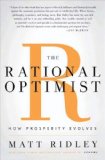some kindle deals
Written on August 2, 2012
This month’s 100 Kindle Books for $3.99 or Less at Amazon.com includes:
Cloud Surfing: A New Way to Think About Risk, Innovation, Scale and Success (Social Century) by Thomas M. Koulopoulos (Bibliomotion, 2012) for $2.99 through August.
Book description from the publisher:
When people hear “the Cloud,” they think of cloud computing and salesforce.com, just a sliver of what the Cloud is today. The Cloud has grown: it represents the consummate disruptor to structure; a pervasive social and economic network that will soon connect and define more of the world than any other political, social, or economic organization. The Cloud is the first megatrend of the twenty-first century, one that will shape the way we will address virtually every challenge we face for at least the next 100 years. It is where we will all live, work, and play in the coming decades. The Cloud is ?where your kids go to dive into online play. It’s where you meet and make friends in social networks. It’s where companies find the next big idea. It’s where political campaigns are won and lost. Cloud Surfing is the groundbreaking book that will explain how to access the full value of the Cloud and how to embrace its possibilities. Video and audio enhanced version also available.
Some Kindle bargains from HarperCollins (prices may vary by region and are subject to change):

The Science of Superstition: How the Developing Brain Creates Supernatural Beliefs by Bruce Hood (2010) for $1.99
Book description from the publisher:
The majority of the world’s population is religious or believes in supernatural phenomena. In the United States, nine out of every ten adults believe in God, and a recent Gallup poll found that about three out of four Americans believe in some form of telepathy, déjà vu, ghosts, or past lives. Where does such supernatural thinking come from? Are we indoctrinated by our parents, churches, and media, or do such beliefs originate somewhere else? In SuperSense, award-winning cognitive scientist Bruce M. Hood reveals the science behind our beliefs in the supernatural.
Superstitions are common. Many of us cross our fingers, knock on wood, step around black cats, and avoid walking under ladders. John McEnroe refused to step on the white lines of a tennis court between points. Wade Boggs insisted on eating a chicken dinner before every Boston Red Sox game. President Barack Obama played a game of basketball the morning of his victory in the Iowa primary and continued the tradition on every subsequent election day.
Supernatural thinking includes loftier beliefs as well, such as the sentimental value we place on photos of loved ones, wedding rings, and teddy bears. It also includes spiritual beliefs and the hope for an afterlife. But in this modern, scientific age, why do we hold on to these behaviors and beliefs?
It turns out that belief in things beyond what is rational or natural is common to humans and appears very early in childhood. In fact, according to Hood, this “super sense” is something we’re born with to develop and is essential to the way we learn to understand the world. We couldn’t live without it!
Our minds are designed from the very start to think there are unseen patterns, forces, and essences inhabiting the world, and it is unlikely that any effort to get rid of supernatural beliefs, or the superstitious behaviors that accompany them, will be successful. These common beliefs and sacred values are essential in binding us together as a society because they help us to see ourselves connected to each other at a deeper level.
The Rational Optimist (P.S.) by Matt Ridley (2010) for $1.99
Book description from the publisher:
Life is getting better—and at an accelerating rate. Food availability, income, and life span are up; disease, child mortality, and violence are down — all across the globe. Though the world is far from perfect, necessities and luxuries alike are getting cheaper; population growth is slowing; Africa is following Asia out of poverty; the Internet, the mobile phone, and container shipping are enriching people’s lives as never before. The pessimists who dominate public discourse insist that we will soon reach a turning point and things will start to get worse. But they have been saying this for two hundred years.
Yet Matt Ridley does more than describe how things are getting better. He explains why. Prosperity comes from everybody working for everybody else. The habit of exchange and specialization—which started more than 100,000 years ago—has created a collective brain that sets human living standards on a rising trend. The mutual dependence, trust, and sharing that result are causes for hope, not despair.
This bold book covers the entire sweep of human history, from the Stone Age to the Internet, from the stagnation of the Ming empire to the invention of the steam engine, from the population explosion to the likely consequences of climate change. It ends with a confident assertion that thanks to the ceaseless capacity of the human race for innovative change, and despite inevitable disasters along the way, the twenty-first century will see both human prosperity and natural biodiversity enhanced. Acute, refreshing, and revelatory, The Rational Optimist will change your way of thinking about the world for the better.
Also: Being Wrong: Adventures in the Margin of Error by Kathryn Schulz (2010) for $1.99
Filed in: Uncategorized.




